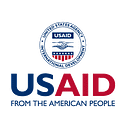Overcoming COVID-19 Vaccine Hesitancy in Timor-Leste
Public-private partnership reaches masses with messaging
Vaccine hesitancy has emerged as a major challenge for the Government of Timor-Leste’s efforts to contain the COVID-19 pandemic and its deadly impact. Lack of awareness about the disease and mistrust of COVID-19 vaccines has resulted in low vaccination uptake, especially in remote, rural communities.
In response, the Ministry of Health (MOH) has upped its investment in risk communication and community engagement, with a focus on providing correct, consistent, and timely information on COVID-19 vaccines. The USAID Health System Sustainability Activity is supporting this work.
The Activity brought onboard a local NGO, “Together a Healthy Country” (Hamutuk Nasaun Saudável, HAMNASA), to provide direct support to targeted communities. HAMNASA’s staff have years of experience delivering health services and working with communities to promote the importance of seeking health services. As the Activity’s grantee, HAMNASA is working to improve COVID-19 vaccine uptake in four municipalities that have reported some of the lowest vaccination rates in the country (Ermera, Bobonaro, Ainaro, and Luiqica).
Tailored messages
The Activity collaborated with the MOH’s Health Promotion Department to design a risk communication strategy that would leverage existing private and public resources to create enthusiasm for COVID-19 vaccination.
A three-pronged approach was devised: 1) text messages broadcast through telecommunication companies to people’s phones, 2) public service announcements (PSAs) on TV and radio, and 3) a social media campaign on HAMNASA’s Facebook page to share accurate information about COVID-19 prevention and vaccination.
Working through HAMNASA, the Activity developed PSA and text message scripts and secured MOH approval. Thirty-six separate scripts provide tailored messaging to people eligible for doses 1 and 2, booster doses, doses for children aged 12–17, and doses for pregnant and postpartum women. Of these, six messages were identified for dissemination through SMS.
Public-private partnership ensures broad reach
Two telecom companies, Timor-Telecom and Telemor, are partnering with HAMNASA to ensure the messages reach a wide swath of people. HAMNASA’s Liga Inan System, a mobile-phone-based platform that connects expectant and new mothers with health providers via text messages, is also being used.
From May to July 2022, the MOH’s COVID-19 messages were seen or heard more than a quarter of a million times. The Activity assessed the four target municipalities and found a marked increase in vaccine uptake over a six-month period (Figure 1), suggesting that targeted initiatives can improve people’s trust and belief in the efficacy and safety of COVID-19 vaccines.
In 2023, HAMNASA will use additional funding from the Activity to expand its work into the municipalities of Alieu and Lautem. There the NGO will engage village-level champions to help spread accurate information about COVID-19 vaccination and, if all goes according to plan, persuade even more Timorese men, women, and children to accept the life-saving vaccine.
